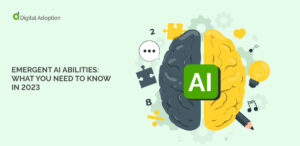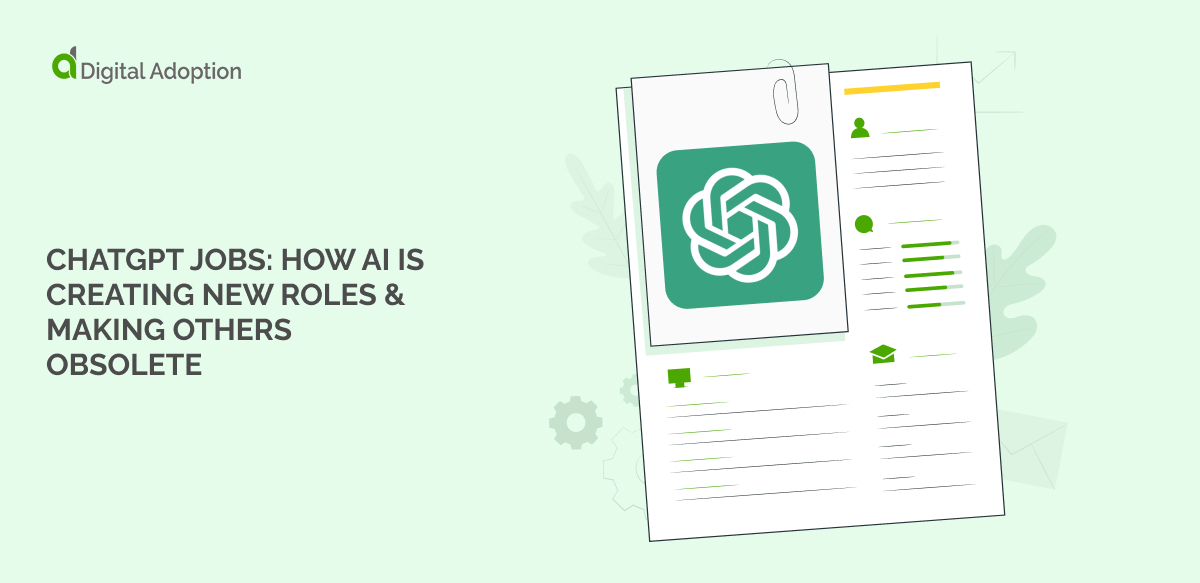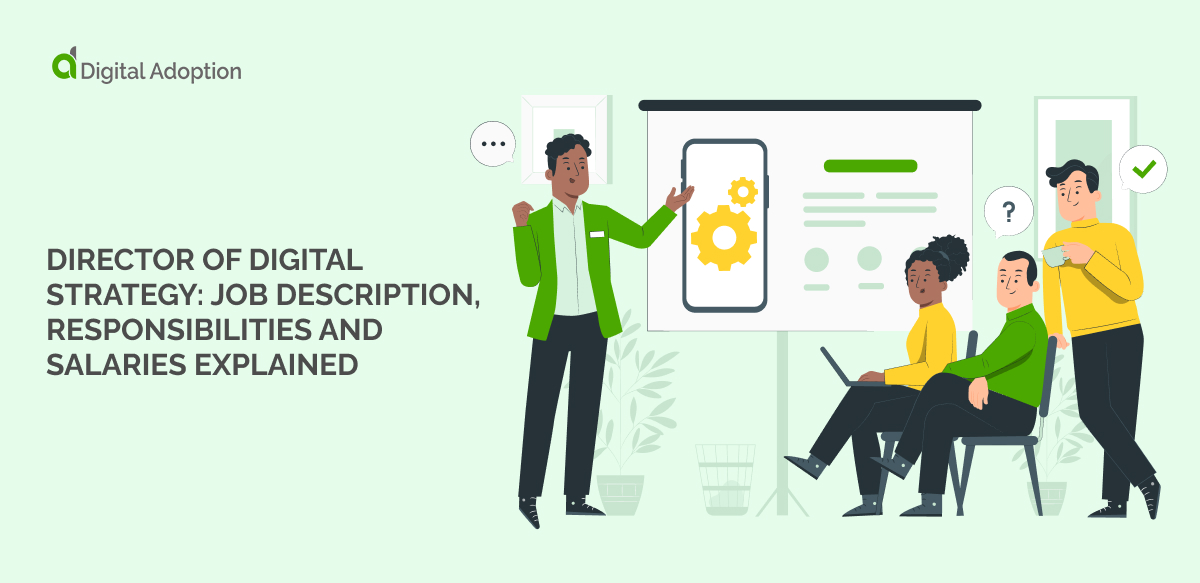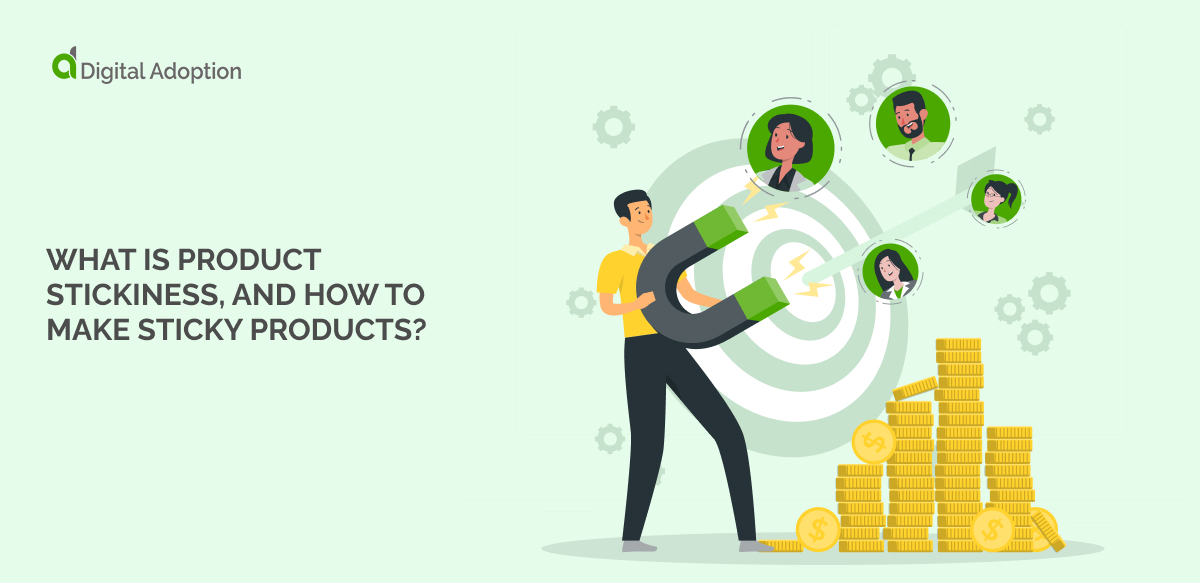Do you remember how much of a splash the iPhone made in the marketplace?
Its success came as a huge shock to many, but most of all to Microsoft.
Disruption is hard to predict. No enterprise can afford to become complacent. Improvement, adaptation, evolution must all be constant.
The biggest disruptor facing enterprises today is digital. It’s been this way for a while now. And here we are today, with adoption being the most critical factor in the success of an enterprise’s digital transformation.
Enter the Digital Adoption Platform for enterprises — your secret weapon against disruption.
Opportunities in digital adoption for enterprises
The opportunities for enterprises presented by true digital adoption are huge. Philip Kushmaro writes about its importance in terms of technology ROI.
“The most obvious reason why digital adoption is important is simple—no matter how effective or powerful a new software solution is, it is only as good as the number of people using it.”
Not just the number of people using it, but how effectively they’re using it. True digital adoption for enterprises is achieved when employees are using contemporary digital tools as intended and to their fullest capability.
Successful digital adoption is a precursor to digital transformation. To stay relevant and competitive in the digital revolution, enterprises must adopt new technology and integrate it seamlessly within their business.
The benefits of doing so are numerous. Better communication and collaboration, more efficient and cost-effective operations, higher productivity and engagement, and a healthier bottom line.
Common threats to digital adoption for enterprises
With the potential benefits to successful digital adoption being so huge, it’s no wonder many CIOs are choosing to use a Digital Adoption Platform for enterprises.
Research says that 8 out of 10 businesses aren’t achieving digital success. Why is this? Well, a huge threat is resistance to change.
Employees tend to perceive digital changes as a threat. They may not understand why it’s necessary. Or they could be frustrated by the need to learn “yet another” system and its neverending updates — as this video illustrates.
This is where the Digital Adoption Platform (DAP) comes in.
Using a Digital Adoption Platform for enterprises — 4 questions to ask yourself
When deciding on a Digital Adoption Platform for enterprises, it’s important to reflect on a few questions before jumping in with your preferred provider.
1. What does success look like for me?
Many business leaders know they need to change, they need to go somewhere. But they don’t know where. You need to work out what success looks like for you, in order to make the most of having the DAP.
We often tell digital adoption and change managers, “failing to plan is planning to fail.” You must define your goals and structure the DAP interface accordingly.
What are your main objectives? What’s your route to achieving them? You need to factor in the people and process changes, as well as the IT ones.
2. How can I make this more integrated & holistic?
When it comes to considering a Digital Adoption Platform for enterprises, it’s smart to take a holistic approach. Collaborate with representatives from other teams and departments to identify collective needs, goals, and resources.
The Government of Canada advises businesses to take a “holistic enterprise-wide approach” to tech implementation. In doing this, it will have the best commercial impact.
Communication is going to be a big part of this. Also planning. Don’t rush the strategic process and decision-making that prefaces your DAP integration. The more holistic you can be, the smoother your digital transformation.
3. What resources do I need?
The DAP will do the work of hundreds of trainers, IT support staff, and data analysts. But you’ll still need to consider what other resources you’ll need.
Who is going to take ownership of the DAP? Who can form a “guiding coalition” to consider the communication about, and ongoing development of, the platform integration?
The DAP itself is not a cost. It’s an investment. And in order to get the best return on that investment, a certain amount of tracking and development time should be allocated to it.
A good DAP will have built-in insights to enable you to learn more about the platform you’ve rolled out and how your users are responding to it. This data should be reviewed regularly in order to be really useful in terms of improving the user experience.
4. Whose buy-in do I need?
For most traditional enterprises, successful digital adoption takes more than just the installation of new technology.
It requires a significant culture shift.
This is where many IT implementation initiatives come unstuck — treating digital adoption as though it’s an IT process is a fool’s errand.
So whose buy-in do you need in order to make the required cultural changes stick?
Leaders must lead the way by actively championing the required new behaviors and outlook. The DAP makes the transition from legacy systems to new ones considerably easier, but everybody needs to be “walking the talk” for true digital transformation to occur.
If you want to ensure the successful digital transformation of your enterprise and equip yourself against digital disruption, the DAP is your friend. Use it well.













